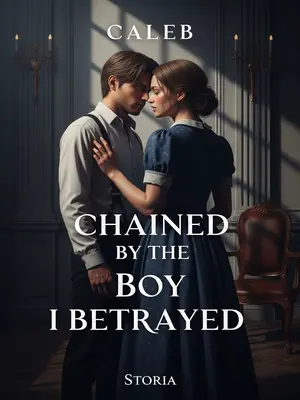Chapter 2: Meatloaf and Motives
On the drive, I learned her name: Natalie Brooks. Twenty-four. She spoke in a low, careful voice, watching the world slide by. Her eyes flicked between the dashboard clock and the window, like she was checking if time really worked out here. I kept the radio low, a hum of country music filling the awkward silences.
She’d served five years for acting as a co-signer on someone else’s loan.
I nodded, murmuring sympathy, but inside I sneered. Who buys that? In my experience, it’s always fraud, always some guy she tried to protect or a scam gone sideways. Pretty girls like her don’t end up in prison by accident.
I sneered inwardly—just as I thought. Women this pretty usually end up in prison for fraud or taking the fall for someone else.
After her release, her parents cut her off. Friends and relatives ghosted her.
She talked about her family in the past tense, her voice shrinking with each mention of home. I watched her knuckles whiten as she described old friends dropping off, like she’d caught something contagious behind bars.
Years in prison left her disconnected, lost, helpless.
She fidgeted with her shirt hem, eyes darting to the rearview, probably half-expecting someone to drag her back.
I was the only one showing her any kindness—her only lifeline.
That’s why she got in my car so easily.
Women like her—treat them a little better, and they’re yours for the taking.
Natalie was the fourth woman I’d picked up this way, and by far the most beautiful.
I glanced at her, remembering the others—some plain, some hard-eyed, none with that fragile, movie-star innocence. I could barely keep my hands on the wheel.
Just imagining her in bed made my skin crawl with anticipation, every nerve itching.
Natalie didn’t say much. When I cracked a joke, she covered her mouth and smiled, her big, bright eyes full of innocence, like she didn’t know how to fake it.
She laughed like she’d forgotten how. Her giggle was soft, genuine—like she’d missed five years of pop culture and had to catch up on every word I said. I let her think I was funny, and she seemed grateful for the distraction.
I parked at a diner and bought her dinner—simple meatloaf and mashed potatoes, the two of us spending less than fifteen bucks.
The hum of the jukebox melted into the sharp scent of old fryer oil and burnt coffee. The chrome and faded red booths looked tired, like the waitress who didn’t bother to hide her boredom. Natalie stared at her plate like it was a test she might fail. I ordered for both of us, adding a slice of pie just to see her smile.
Natalie ate slowly and carefully. Even when food fell on the table, she picked it up and ate it.
She cleaned her plate like it was her last meal on earth, eyes flicking up to see if I noticed. Her elbows stayed tucked in, chewing each bite with reverence. When her fork slipped and a piece of meatloaf landed on the Formica, she glanced at me, then scooped it up and ate it without a word.
I leaned back in the booth, blowing smoke at the ceiling tiles, letting her see me watching. Control is about letting her know who’s in charge of the air she breathes.
Almost every former inmate’s first meal outside is like this.
After prison, they know how precious life on the outside is.
They savor every bite, every flavor—even cheap ketchup on white bread. I’d seen it too many times. They eat like it might be their last meal.
That’s why, even if I use force, they never think to call the cops.
After dinner, night had fallen.
I invited Natalie to stay at my place for the night, promising to help her get used to society the next day.
She agreed.
She didn’t ask many questions, just nodded, gathering her bag. I could tell by the way she walked beside me—head down, shoulders hunched—that she’d do whatever I said, at least for now.













